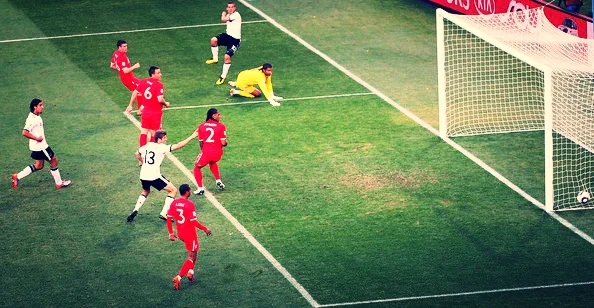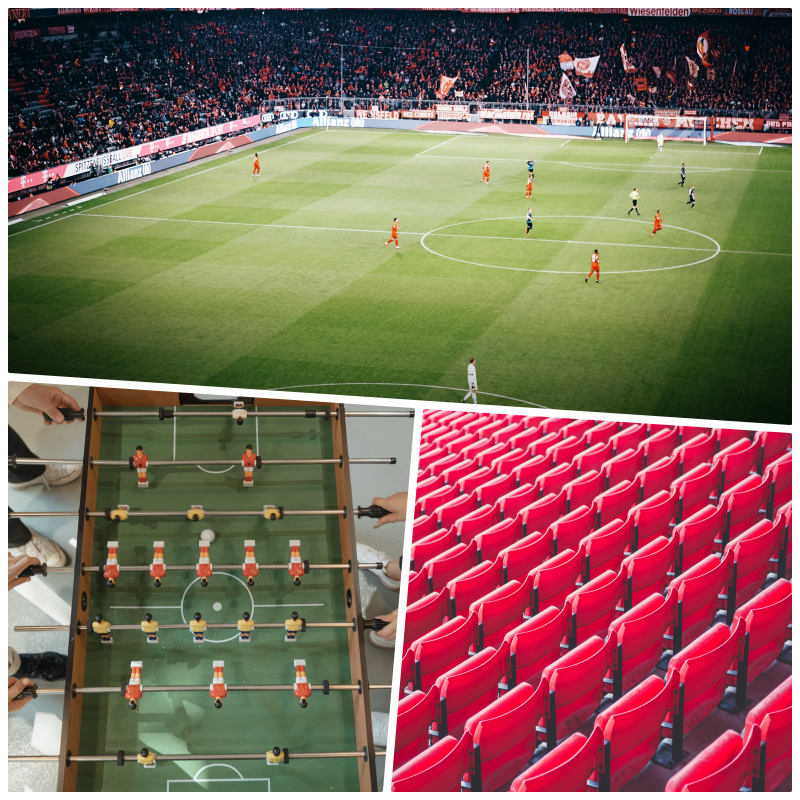England v Germany: Is it Ever a Friendly?
“Football” the old adage goes “is a funny old game”, except perhaps when it comes to England vs Germany. In March of this year, before England played Germany in Dortmund, I wrote an article that looked at the football rivalry between the two nations and posited that at some point England fans would no doubt cover themselves in shameful behaviour. This prediction hardly needed Nostradamus. England fans duly supplied the expected idiocy by first booing the German national anthem (having watched German fans politely clap the English anthem) and then compounded the insult by singing ‘Ten German Bombers’ a song so devoid of any class or humour it could easily have been written by arch racist “comedian”, Roy Chubby Brown. Nothing speaks to the thousands of years of English heritage and culture like a large group of balding middle-aged men singing about a war they never participated in.
Winning hearts and minds is rarely part of the mantra of a certain type of English football fan. That being said, this week’s return friendly at Wembley Stadium may turn out to be the antithesis of the March game in Germany. Either by chance or design, the England v Germany match will be played two days before Remembrance Sunday, the day set aside to remember British soldiers. First observed on 11th November, 1919 chosen due to it being the day the Armistice was signed between the victorious Allied Forces and Germany the year before.
In anticipation of potential trouble, England fans have been warned that should they choose to disrupt proceedings on Friday, they could face being thrown out of the stadium and have their England memberships revoked. If further reminders were needed, England Head Coach Gareth Southgate will repeat calls for fans to show respect to the event and their opponents in his pre-match press conference and within the matchday programme. It says everything about the current state of English football fans that they need to be reminded continually not to act like outdated stereotypes. Even with these warnings, I will not be surprised if fans continue the trend of small minded stupidity.
It will be all the more galling should trouble occur, given that the DFB has agreed to the English FA’s request for both teams to wear black armbands with a poppy, the symbol of British remembrance, stitched on to them. A recent FIFA rule change had seen the poppy officially banned from British international kits as it was considered a political symbol. The response of the Welsh, Scottish, Northern Irish and English FAs was to unilaterally ignore FIFA and accept the resultant fines. Thankfully, FIFA have since rescinded the rule to allow poppies to be displayed.
When questioned about the decision DFB president Reinhard Grindel declared that the poppy was not "political propaganda".
"They're about remembering the kind of values that were kicked to the ground in two World Wars but are cherished by football: respect, tolerance, and humanity,".
In addition to the traditional minutes silence, banner parades and poppy sellers, a replica of ‘The Truce’ statue will be on display next to the statue of England legend Bobby Moore. The statue depicts the events of Christmas Day 1914, where English and German soldiers stopped shooting at each other on the Western Front and instead chose to play a friendly game of football instead. All this good will might hopefully prove to be enough of an incentive for English fans to behave.
I would love to believe this to be the case, but as I have already mentioned, I have my doubts. Being an England fan in Germany is often a tricky task, given that for many people I am the only England fan they know. Whenever England fans cause trouble, whether during international or club European tournaments, I am expected to explain why it is that England fans continually find themselves the at the centre of fan unrest. When in return, I ask about German fans causing trouble, I am presented with blank stares and a wall of silence. England will always carry marker as potential trouble makers, whether we do anything or not.
During my first experience of German football, when fans discovered I was English, I was told that I must be a “Football Hooligan”. When I replied in no uncertain terms that I was not, I was greeted with sarcastic laughs and knowing winks. The word hooligan in Germany does not carry the same stigma as it does in the UK and in many ways, it is a celebrated badge of honour. People tell me their favourite film is “Hooligans” (better known by its English title Green Street), which ironically depicts the recollections of the German director Lexi Alexander’s time supporting FC Schalke 04. Instead of setting it in Germany, however, Alexander instead decided it would be better situated among the relics of British football hooliganism, choosing to portray West Ham United.
Although Green Street is better known in the UK for the appalling cockney accent of lead actor Charlie Hunnam, in Germany it is practically considered a documentary of the average English matchday experience. The moral of the story is that football hooliganism is bad, but German audiences seem to have taken away a different lesson. Perhaps they missed the ending where Hunnam’s character was beaten to death in a mass brawl. Either way, travelling around Germany, I frequently come across graffiti dedicated to the hooligans of different teams, with the word ‘Ultra’ being used synonymously with hooligan.
The trope of the English hooligan may well be outdated, but acts of stupidity and gross classlessness only serve to continue the idea that England is a land of football extremists, all tattoos and shovel like fists. I continue to hope that the England fans do themselves justice off the pitch, even if my national team rarely does on it. In the end, when it comes to friendlies or competitive matches with Germany, I think Gary Lineker summed it up best:
“Football is a simple game. Twenty-two men chase a ball for 90 minutes and at the end, the Germans always win”.








